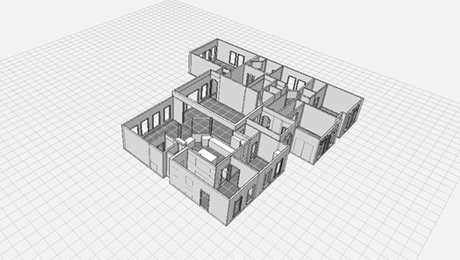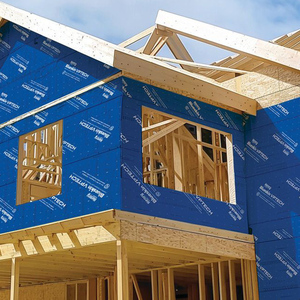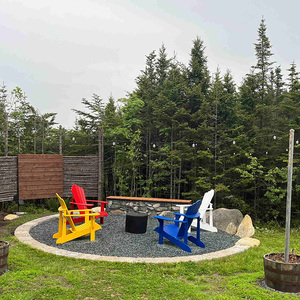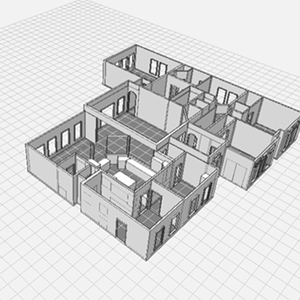Currently logging several ways and yes the list goes on…… of building a high quality attractive house of lesser cost.First a break down from start to finish of “all” costs directly and indirectly related to where I can creatively shave prices.Lot,size & style of house,prints,surveys,insurance,all labour and materials down to the sill bolts, efficient home building 4′ concrete walls,roof pitch,buying things on sale,delivering my own material,design to minimize scrap & haul to dump,finding efficient and timely subs then examining ways to quicken their work,better financing doing some of the work on my own.I need to be as detailed as possible.Most builders I talk to are all secretive as they want to hoard their info/fortune as All the ones I know do very well.Any ideas?
Discussion Forum
Discussion Forum
Up Next
Video Shorts
Featured Story

Hover's smartphone app offers an easier way to get precise 3D scans.
Highlights
"I have learned so much thanks to the searchable articles on the FHB website. I can confidently say that I expect to be a life-long subscriber." - M.K.
Fine Homebuilding Magazine
- Home Group
- Antique Trader
- Arts & Crafts Homes
- Bank Note Reporter
- Cabin Life
- Cuisine at Home
- Fine Gardening
- Fine Woodworking
- Green Building Advisor
- Garden Gate
- Horticulture
- Keep Craft Alive
- Log Home Living
- Military Trader/Vehicles
- Numismatic News
- Numismaster
- Old Cars Weekly
- Old House Journal
- Period Homes
- Popular Woodworking
- Script
- ShopNotes
- Sports Collectors Digest
- Threads
- Timber Home Living
- Traditional Building
- Woodsmith
- World Coin News
- Writer's Digest


















Replies
a. make at least a small 'campaign contribution' to a local councilman so you have an AHJ side advocate (dont know how that works in Canada though)
b. take advantage of all 'pre-permit' visits to AHJ to establish working relationship with AHJ - thos folks gotcha by the balls, so dont fight it, be lavish with compliments without being a sycophant (e.g. "I'm glad you told me that", "you have helped a lot", etc. even though you know you are getting ripped off by the AHJ)
c. learn how to 'game' the permit system (no joke, in my area permits are >20% of my building costs even gaming the system!)
e.g. want to have a basement workshop but not pay the additional sq ft permit fees? - call it a crawl space and have the ceiling only 6 ft, 5-3/4", have a 12" thick footer; cover dirt at top of footer with poly per code - after permits all signed, pour your floor after digging oout that extra 12" to bottom of footing, now you have a 7'-1" basement ceiling. etc....
d. maximize use of surplus materials (e.g. habitat stores, craigslist, dumpsters, etc.)
e. only the difference between buying tools and resale price counts in cost of building, no count if yu keep the tools for 'hobby'
f. last but not least, DIY - would take me more time to find a contractor even if they worked free than to simply DIY.
g. Building for re-sale? In the USA, have a close relative (son/daughter/parent) live in the building for 2 years or more for free or for < 1/2 nominal rent in the area, then capital gains on sale of property is not taxed.
etc...
Three ways to reduce cost.
There are only three ways to reduce cost of a building.
1. Reduce the size.
2. Reduce the quality.
3. Reduce the complexity.
The third would involve a detailed look at the program for the house rather than any offering any generalities.
Since this site is Fine Homebuilding I wouldn't pick 2 as an option. Put your money into a small, simple, well built house.
I think you could add "Reduce
I think you could add "Reduce the fanciness." Or, perhaps, "Reduce the ostentatiousness." This is different from "quality". Exotic materials, filigree woodworking, "dramatic" windows, etc, don't add to the durability or functionality of the house, but they can certainly run up the cost.
There is an important distinction between "quality" and "expensive".
I put these in the complexity category. But there are different levels of quality. And sometimes quality can be compromised. Cheaper materials are not always bad. The decision must always be how good is good enough.
(I'm sold on "quartz".)
(I'm sold on "quartz".)
Quarts has more VOCs than
Quartz has more VOCs than Granite, but is more flexible. Granite has a higher probability of radioactive emissions. Formica is safer, unlikely to crack, and is less expensive than either.
I also like "solid surface",
I also like "solid surface", though it's a bit easier to scratch.
I don't quite get how Formica is "safer". and it shows wear worse than the rest and delaminates.
Glasses are more likely to bounce than break on formica.
Yeah, granite is rough on glass!
Yeah, the one thing that bugs me about quartz is that it's so hard. Haven't broken a dish on it yet, but clumsy ole me hits the surface hard with a dish fairly often, so it's only a matter of time.
But SWMBO is delighted with the stuff, so that's the important thing.